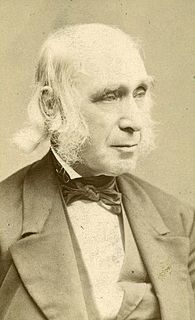
Amos Bronson Alcott was an American teacher, writer, philosopher, and reformer. As an educator, Alcott pioneered new ways of interacting with young students, focusing on a conversational style, and avoided traditional punishment. He hoped to perfect the human spirit and, to that end, advocated a vegan diet before the term was coined. He was also an abolitionist and an advocate for women's rights.

Louisa May Alcott was an American novelist, short story writer and poet best known as the author of the novel Little Women (1868) and its sequels Little Men (1871) and Jo's Boys (1886). Raised in New England by her transcendentalist parents, Abigail May and Amos Bronson Alcott, she grew up among many of the well-known intellectuals of the day, such as Ralph Waldo Emerson, Nathaniel Hawthorne, Henry David Thoreau, and Henry Wadsworth Longfellow.
Transcendentalism is a philosophical movement that developed in the late 1820s and 1830s in the eastern United States. A core belief is in the inherent goodness of people and nature, and while society and its institutions have corrupted the purity of the individual, people are at their best when truly "self-reliant" and independent.
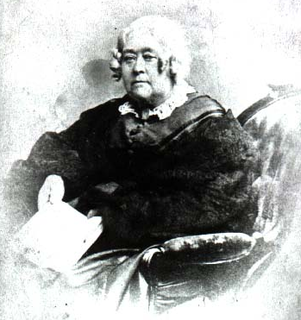
Elizabeth Palmer Peabody was an American educator who opened the first English-language kindergarten in the United States. Long before most educators, Peabody embraced the premise that children's play has intrinsic developmental and educational value.

Sarah Margaret Fuller Ossoli was an American journalist, editor, critic, translator, and women's rights advocate associated with the American transcendentalism movement. She was the first American female war correspondent, writing for Horace Greeley's New-York Tribune, and full-time book reviewer in journalism. Her book Woman in the Nineteenth Century is considered the first major feminist work in the United States.
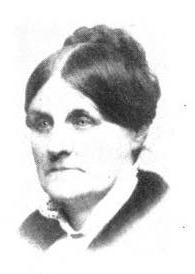
Abigail "Abba" Alcott was an American activist for several causes and one of the first paid social workers in the state of Massachusetts. She was the wife of Transcendentalist Amos Bronson Alcott and mother of four daughters, including Civil War novelist Louisa May Alcott.
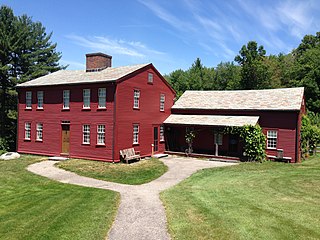
Fruitlands was a Utopian agrarian commune established in Harvard, Massachusetts, by Amos Bronson Alcott and Charles Lane in the 1840s, based on Transcendentalist principles. An account of its less-than-successful activities can be found in Transcendental Wild Oats by Alcott's daughter Louisa May Alcott.

Orchard House is a historic house museum in Concord, Massachusetts, US, opened to the public on 27 May 1912. It was the longtime home of Amos Bronson Alcott (1799–1888) and his family, including his daughter Louisa May Alcott (1832–1888), who wrote and set her novel Little Women (1868–69) there.

Jones Very was an American poet, essayist, clergyman, and mystic associated with the American Transcendentalism movement. He was known as a scholar of William Shakespeare and many of his poems were Shakespearean sonnets. He was well-known and respected amongst the Transcendentalists, though he had a mental breakdown early in his career.
Elizabeth Sewall "Lizzie" Alcott was one of the two younger sisters of Louisa May Alcott. She was born in 1835 and died at the age of 22.

William Andrus Alcott, also known as William Alexander Alcott, was an American educator, educational reformer, physician, vegetarian and author of 108 books. His works, which include a wide range of topics including educational reform, physical education, school house design, family life, and diet, are still widely cited today.

Ellen Sturgis Hooper was an American poet. A member of the Transcendental Club, she was widely regarded as one of the most gifted poets among the New England Transcendentalists. Her work is occasionally reprinted in anthologies.
The Quincy family was a prominent political family in Massachusetts from the mid-17th century through to the early 20th century. It is connected to the Adams political family through Abigail Adams.

The Melodeon was a concert hall and performance space in 19th-century Boston, Massachusetts, located on Washington Street, near West Street. Musical concerts, lectures, sermons, conferences, visual displays, and popular entertainments occurred there.

Mary Tyler Peabody Mann was a teacher, author, mother, and wife of Horace Mann, American education reformer and politician.

The New England Women's Club of Boston, Massachusetts, was one of the two earliest women's clubs in the United States, having been founded a couple of months after Sorosis in New York City.

The Oneida Institute was a short-lived (1827–1843) but highly influential school that was a national leader in the emerging abolitionism movement. It was the most radical school in the country, the first at which black men were just as welcome as whites. "Oneida was the seed of Lane Theological Seminary, Western Reserve College, Oberlin and Knox colleges."

The Odeon of Boston, Massachusetts, was a lecture and concert hall on Federal Street in the building also known as the Boston Theatre. The 1,300-seat auditorium measured "50 feet square" with "red moreen"-upholstered "seats arranged in a circular order, and above them ... spacious galleries." The Boston Academy of Music occupied the Odeon in the 1830s and 1840s Notable events at the Odeon included "the first performance in Boston of a Beethoven symphony."
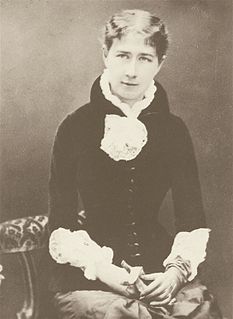
Mary Colman Wheeler was the founder and first head of the Wheeler School in Providence, Rhode Island.
Caroline Sturgis Tappan, commonly known as Caroline Sturgis, or "Cary" Sturgis, was an American Transcendentalist, poet, and artist. Caroline Sturgis was born in Boston, Massachusetts to the former Elizabeth Marsten Davis Sturgis (1789-1864), the second daughter of Judge John Davis, a U.S. District Judge for the District of Massachusetts, and William F. Sturgis (1782-1863), a former sea captain who rose to become one of the wealthiest and most successful merchants in Boston. Known for her friendships and frequent correspondences with prominent American Transcendentalists, such as Margaret Fuller and Ralph Waldo Emerson, Sturgis published 25 poems in four different volumes of The Dial, a Transcendental periodical. She also wrote and illustrated two books for children, Rainbows for Children (1847) and The Magician’s Show Box, and Other Stories (1856). Bowing to the dictates of her class and its restrictions on gender, Sturgis did not reveal her authorship of these two books, attributing them instead to her friend Lydia Maria Child. She attended Bronson Alcott's Temple School, Dorothy Dix's school for girls, became Margaret Fuller's private student, and she participated in Fuller's Conversations series with her sister Ellen Sturgis Hooper (1812-1848). Recent research has shown that Sturgis had a greater influence on Transcendentalist thought than previously acknowledged, particularly on Ralph Waldo Emerson, whose journals and poems provide evidence of his deep respect for her.




















